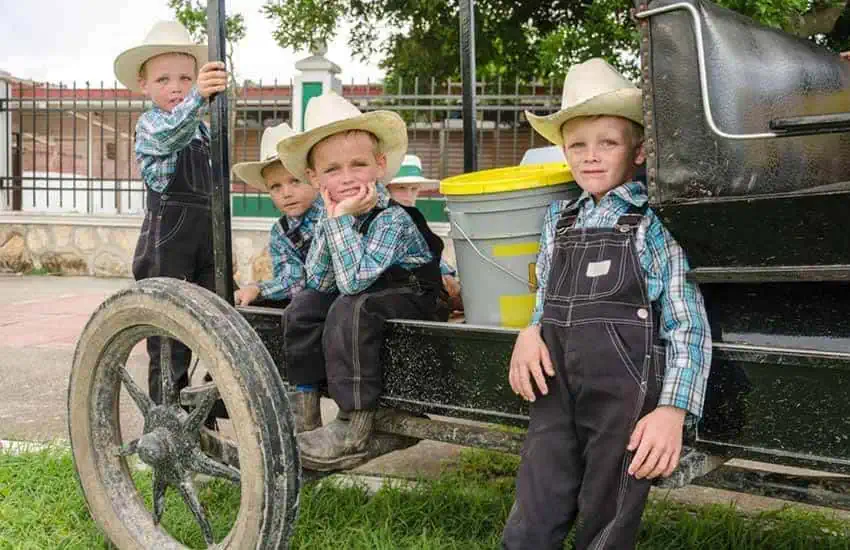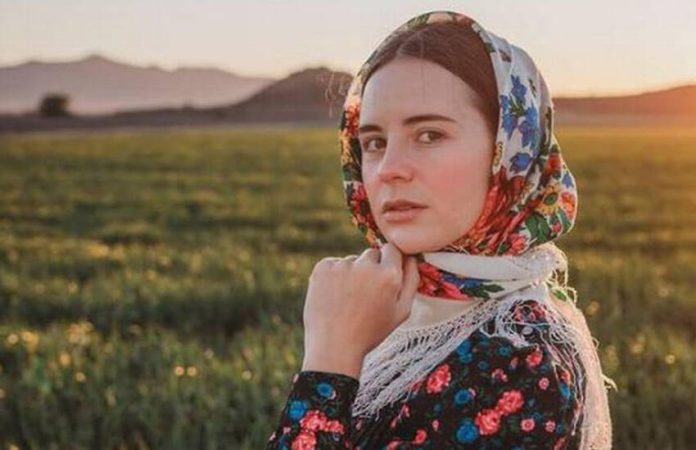Mennonites have been living in Mexico for 100 years, with the first settlers arriving from Canada in the early 1920s and establishing themselves in Chihuahua.
A century later, there are some 100,000 Mennonites in the country, most of whom live in Chihuahua and the neighboring state of Durango, although there are also settlements in states such as Zacatecas, San Luis Potosí and Quintana Roo.
But the Mennonites’ lifestyle is something of a mystery for many people, generating misconceptions about their religious and political leanings. Changing those misconceptions is one goal of the Menonita Mexicana.
The young member of the Mexican Mennonite community provides an insight into the daily life of her people in Cuauhtémoc, Chihuahua, via her accounts on social media and video sharing platforms such as Instagram, Facebook, TikTok and YouTube.
Among Marcela Enns’ recent posts on Instagram are photos of a traditional Mennonite house, her aunt making cookies, a young Mennonite woman at work and the Chihuahua countryside. There are also several images of Enns and other Mennonites in traditional attire.
“Mennonites love gatherings, and traditional food is always present. Here in Mexico, [Mennonite] food is combined or infused by local cuisine. Nuddlesupp [noodle soup] and tortas are one of my favorite combinations,” she wrote in one post.

In an interview with the newspaper El Heraldo de Chihuahua, Enns said that her main inspiration for posting videos about her life was the lack of nonreligious content in Low German, her native language.
She opened her Instagram account in 2013 and her YouTube channel — Menonita Mexicana — in 2018, and as her online popularity grew, her followers began asking her to produce content in Spanish. Enns, 30, continues to make Low German content but also uses Spanish and English.
She said that her objective is to break down stereotypes about Mennonite culture, adding that a lot of people think that Amish people and Mennonites are one and the same.
Documentaries about Mennonites only show traditional, conservative communities, Enns said. “They’re very interesting, but not everyone leads that kind of life,” she said, adding that many Mennonites use electricity, drive cars, have cell phones and surf the internet.
Enns, who said in a recent TikTok video that she works as a cleaner, described living in the Chihuahua countryside as very peaceful, telling El Heraldo that she enjoys her freedom, the silence of the place and observing the production of food. She said she likes living in a Mennonite community but also enjoys spending time with people from other walks of life.
“The Mexican culture is so rich and beautiful; it has so much to offer, and don’t even talk about the delicious food. I had the opportunity to coexist with non-Mennonite people from a young age, so I’ve always had the two cultures present in my life. It’s a great gift … to have that opportunity,” said Enns, whose ancestors arrived in Chihuahua by train from Canada.
Former president Álvaro Obregón gave a set of concessions to a group of Mennonites to settle in the northern state of Chihuahua in 1922, and thousands left Canada due to laws they didn’t like in that country, including a requirement for their children to attend state-run schools.
Many of the residents of the Mennonite communities in Cuauhtémoc, where approximately 33,000 Mennonites live, work in agriculture as their ancestors did in countries such as Russia and Ukraine. But some young Mennonites who had the opportunity to pursue tertiary education now work in professional positions.
With reports from El Heraldo de Chihuahua
